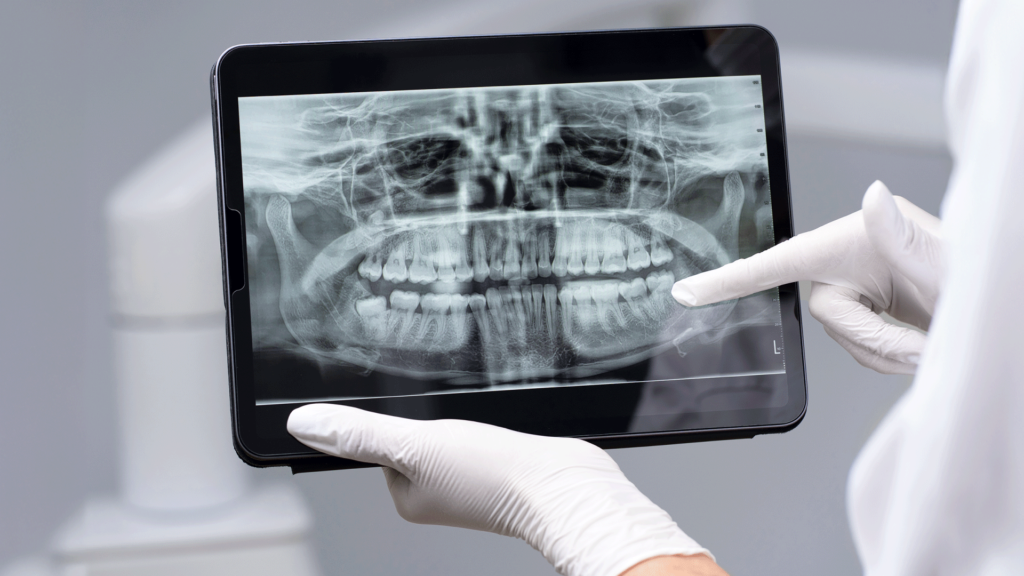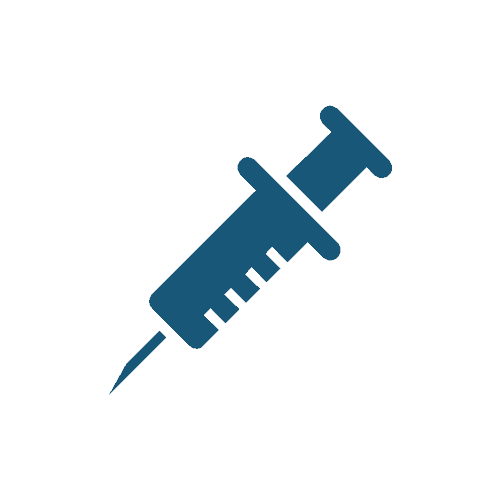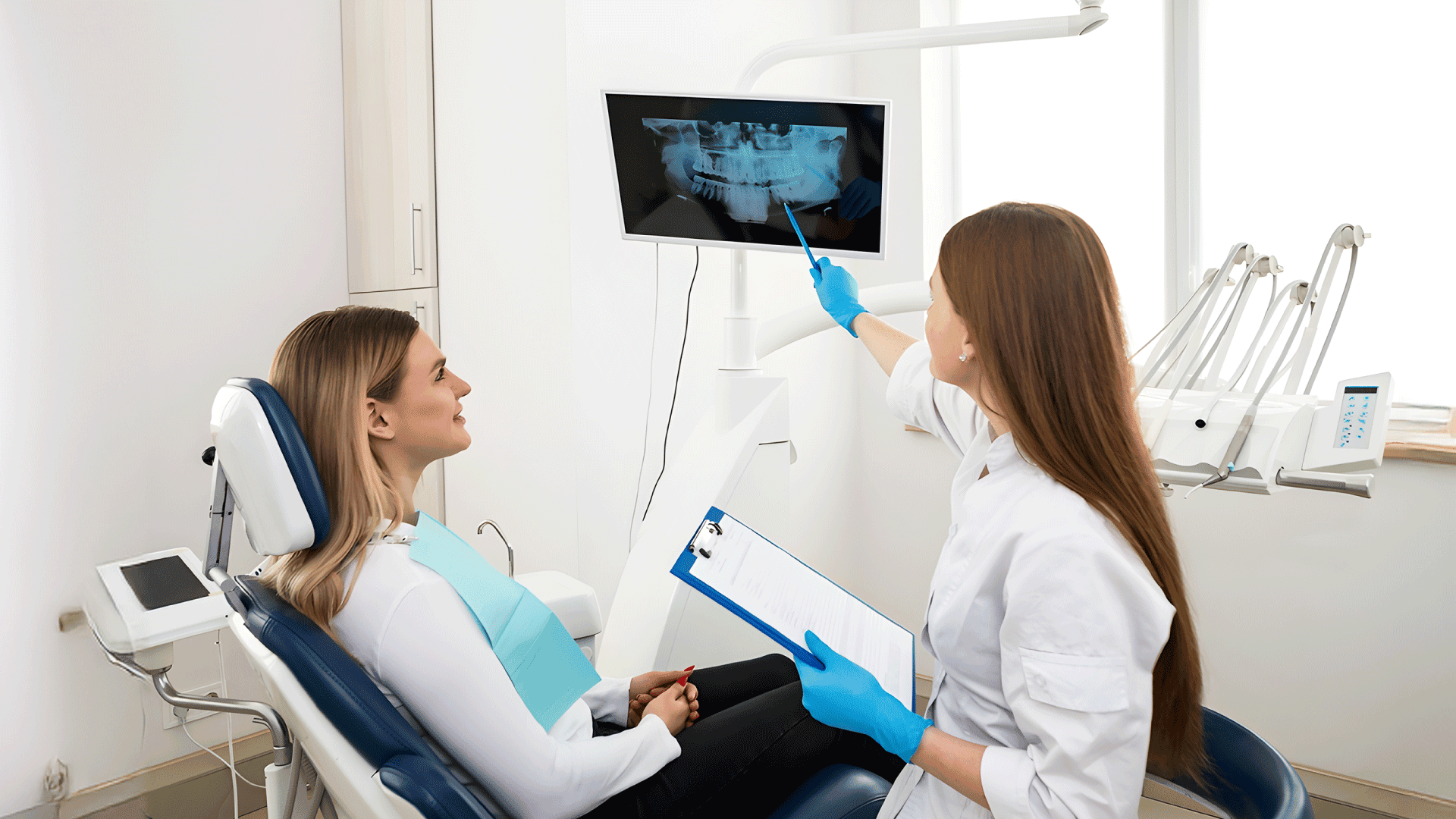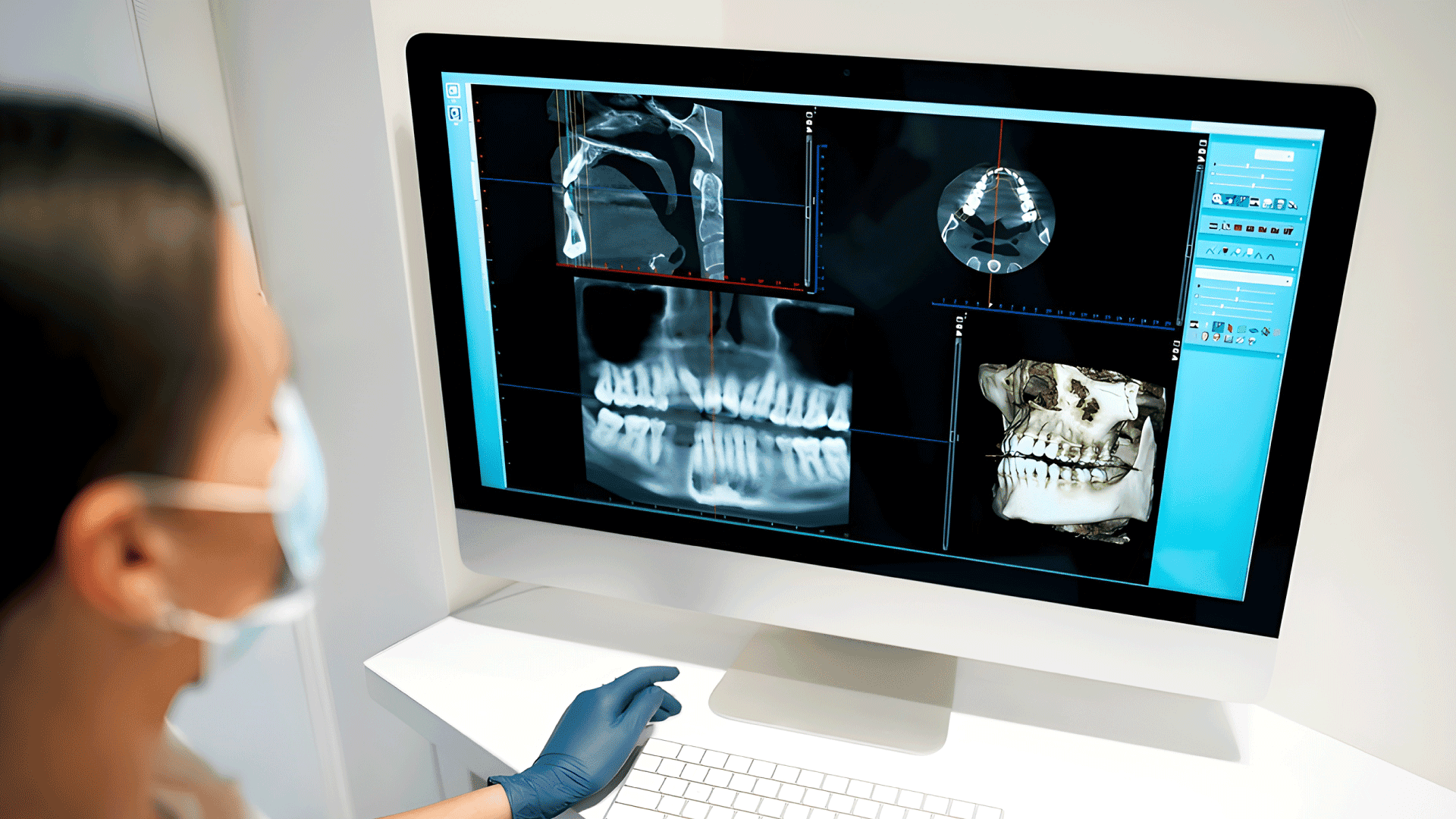TMJ Treatments – Expert Care for Jaw Discomfort
Book Your Appointment
You can use the form below and we will get back to you as soon as possible.
What is TMJ Disorder?
Temporomandibular joint disorder (a.k.a TMJ disorder) is a condition that affects the joint connecting the jaw to the skull, leading to jaw pain, headaches, and difficulty opening and closing your mouth. This condition is commonly referred to by people as TMJ disorder. However, TMJ describes your actual jaw joint, while TMD (the proper naming of the condition) stands for temporomandibular joint dysfunction.
Everybody has two TMJs (temporomandibular joints)—one on each side of your face, just in front of your ears. TMJs are responsible for connecting your lower jaw to your skull and enabling it to perform chewing and speaking movements. When TMJs suffer a disorder, they move abnormally, sliding out of their sockets when the jaw opens instead of normally staying in. People with TMJ disorder may experience headaches, earaches, neck pain, and facial tenderness, which can interfere with work, sleep, and social interactions.


So, what leads to a TMJ disorder? In fact, there are several common causes of TMJ disorder. They mainly include jaw injuries, teeth grinding or clenching (bruxism), arthritis, and misaligned teeth or bites. Stress is another contributing factor, as it can lead to muscle tension in the jaw, worsening the condition. These factors can strain or damage the joint, leading to pain and discomfort.
Ignoring a TMJ disorder isn’t a guilt-free decision. Left untreated, TMJ symptoms become more and more insufferable, as they’re likely to develop severe issues, such as chronic migraines or long-term jaw misalignment. This illustrates the crucial nature of seeking proper TMJ treatments; not only does it alleviate immediate discomfort, but it also shields from future complications and helps individuals restore comfort to their everyday activities.
Nonetheless, TMJ disorders are treatable and, in many cases, curable. Swedish Dental Clinic joins together knowledge and expertise within a patient-centric approach to remain a leading TMJ treatment clinic in Dubai Marina. A place where your trust is not wasted and your expectations are exceeded—Swedish Dental Clinic offers you timely and personalized care designed to help you manage your TMJ disorder and regain a better quality of life.
Symptoms of TMJ Disorder
Patients experience TMJ disorder differently. Each case and its severity are unique. Therefore, the appearance of symptoms may vary from one person to the other. However, TMJ symptoms can be broken down into two main categories: common and severe.

Common Symptoms
Common symptoms of TMJ disorder include jaw pain or tenderness, difficulty or discomfort when chewing, clicking or popping sounds in the jaw, and headaches. Many people also experience stiffness or limited movement in the jaw.

Severe Symptoms
Severe symptoms can involve chronic migraines, intense facial pain, jaw locking (where the mouth gets stuck open or closed), and earaches or ringing in the ears (tinnitus). In some cases, severe TMJ can lead to difficulty in opening the mouth fully or even chronic neck and shoulder pain.
Our TMJ Treatment Process
Initial Consultation
Once you visit us for a TMJ consultation, our TMJ specialist will carefully assess your symptoms, review your medical history, and conduct a physical examination of your jaw. This may include observing jaw movement, checking for tenderness, and listening for clicking or popping sounds. Diagnostic imaging, such as X-rays or MRI scans, may also be used to get a clearer picture of your condition.


Diagnosis & Personalized TMJ Treatment
After your initial consultation, our TMJ specialist will develop a personalized treatment plan tailored to your specific needs. Depending on the severity of your condition, this plan may include non-surgical treatments like bite guards, physical therapy, and medication. However, if your case proves to be more severe, advanced TMJ therapies, such as injections or laser treatments, may be recommended to relieve pain and restore proper function to the temporomandibular joint. Some cases can’t be resolved with non-invasive treatments and may require surgery. Rest assured, our TMJ specialist will go the extra mile to avoid resorting to surgery unless it’s deemed the only option for a full recovery.
Types of TMJ Treatments Available
The right TMJ treatment for you depends on several factors, including the underlying cause and the severity of your pain. Treating this disorder has multiple approaches, including:

Medication
Pain relievers, muscle relaxants, and anti-inflammatory drugs alleviate pain and reduce muscle tension around the joint.

Lifestyle Modifications
Incorporating certain changes into your daily life, such as eating softer foods, avoiding excessive jaw movements, and practicing stress-reducing techniques, can help treat symptoms.

Physical Therapy
Exercises to strengthen the jaw muscles, improve mobility, and reduce stiffness are often recommended, along with heat or ice therapy.

Mouthguards or Splints
Custom-made dental devices can be worn to prevent teeth grinding and reduce pressure on the jaw joint.

Injections
Steroid or Botox injections can be administered into the jaw muscles to reduce inflammation, relax tight muscles, and alleviate pain.

Surgery
In severe cases where conservative treatments fail, surgical interventions like arthroscopy or joint replacement may be necessary to repair or replace damaged jaw joints.
Why Choose Swedish Dental Clinic for TMJ Treatment?
At Swedish Dental Clinic, we invest our knowledge, expertise, and technology to offer patients comfort and health. This is why we commit ourselves to providing expert and genuine care for TMJ disorders, ensuring we offer our patients tailored and non-invasive treatments. Here’s what sets us apart:

Experienced TMJ Specialists
Our team of highly skilled specialists has extensive experience in diagnosing and treating TMJ disorders, utilizing the latest knowledge and techniques to deliver effective results.

State-of-the-Art Facility
We use cutting-edge technology and advanced treatment methods to address TMJ dysfunction, ensuring precise diagnosis and comprehensive care.

Patient-Centric Care
Our approach focuses on personalized care, prioritizing patient comfort, and developing tailored treatment plans that lead to optimal, long-lasting outcomes.
Meet Our Dedicated Dentists

Dr. Ines Mockbil
General Dentist Cosmetic Dentist
Dr. Ines Mockbil is an expert Swedish-German dentist specializing in restorative and prosthodontic dentistry.

Dr. Jelena Pavesic
Cosmetic Dentist, General Dentist
Dr JP graduated in Medicine and Dentistry in Trieste (Italy), where she worked as a dentist in her own clinic.
Explore Our Comprehensive Dental Services
Our Patients Say It Best
After suddenly hearing a clicking noise coming out of my jaw and feeling a lot of discomfort, too, I decided to visit Swedish Dental Clinic for treatment. I’m truly glad to have chosen this clinic for my TMJ issues. Dr. Torsten made the entire treatment feel very safe and seamless. A true professional.
My jaw hurt me a lot always when I had food. I struggled with easy activites, even speaking, and I didn’t know why. But Swedish Dental Clinic helped me a lot and fixed my problem. Everything was normal after that and I’m really happy about the results. Special thanks to Dr Torsten for his genuine care.
As a Swede myself, I always choose Swedish Dental Clinic for mouth problems. My jaw was in incredible pain, and I had what they called a TMJ disorder. After a consultation visit, Dr. Torsten carefully examined my jaw and recommended the best treatment for me. Now my jaw feels great and I have him to thank for that.
After dealing with TMJ issues and struggling for months trying to find help, I finally found relief here. The staff is highly skilled and very knowledgeable. Now that I’ve had treatment for my TMJ at Swedish Dental Clinic, I can eat without pain and sleep through the night! Highly recommend!
I was nervous about seeking treatment for my TMJ, but the team made me feel comfortable and explained everything clearly. Their non-surgical approach helped me avoid more invasive treatments, and I feel much better now. Thank you!
FAQ
Frequently Asked Questions About TMJ Disorder
Tooth extraction is a medical procedure that might sometimes involve surgery. Therefore, there are potential risks including infection, excessive bleeding, nerve damage, and dry sockets. It is extremely vital to follow the post-operation instructions given by our expert dentists to minimize those risks or completely avoid them.
Tooth extraction anesthesia in Dubai varies based on your specific needs. For simple procedures, local anesthesia numbs the area. When anxiety is a concern, “laughing gas” offers relaxation alongside local anesthesia. More complex extractions might require conscious sedation, inducing drowsiness. In rare cases, general anesthesia renders you fully unconscious.
Generally, no specific age restricts tooth extraction. Our Dentists prioritize individual needs and oral health regardless of age. However, young children and older adults might require special considerations and alternative approaches depending on their health and development.
Before tooth extraction in Dubai, it is important to inform your dentist about any medical conditions you have or medications you are taking. You should also follow any pre-operative instructions given by your dentist, such as fasting before the procedure.
After tooth extraction, it is important to follow post-operative instructions provided by your dentist, such as avoiding smoking, rinsing with salt water, and taking prescribed pain medication.
While tooth extraction remains an option, consider alternatives first! Fillings address minor damage, root canals save the tooth’s core, crowns shield weakened teeth, gum treatment combats instability, and even braces/aligners might eliminate the need for extraction. No need to worry, our dentist will examine and analyze your case, making sure they offer you the most suitable treatment.


